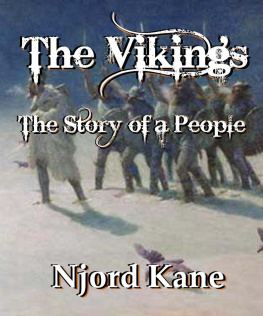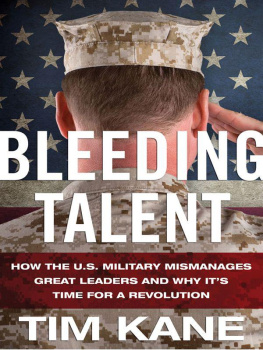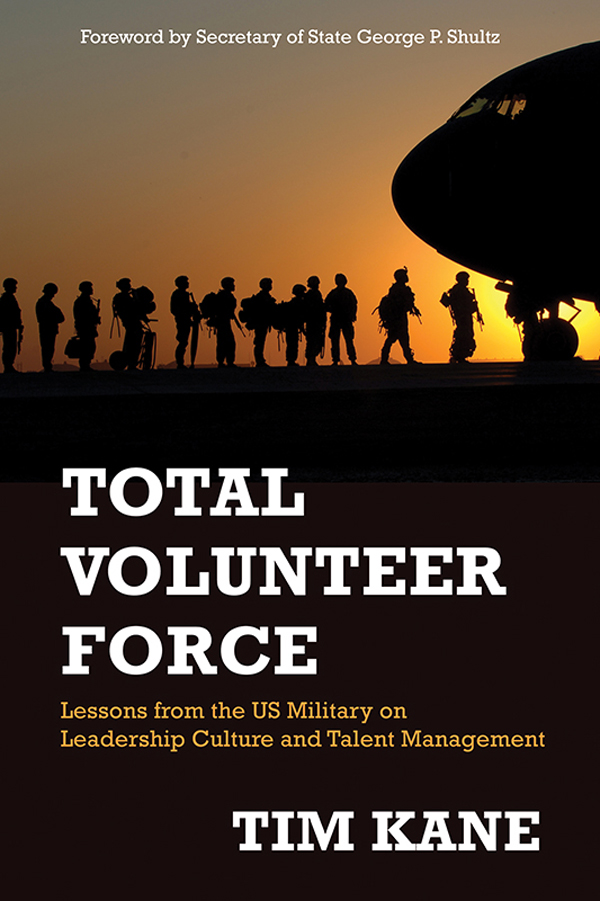Contents
Guide
Total Volunteer Force
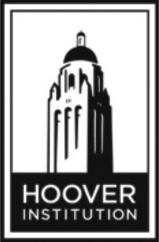
| The Hoover Institution gratefully acknowledges T HE S MITH R ICHARDSON F OUNDATION for their significant support of this publication. |
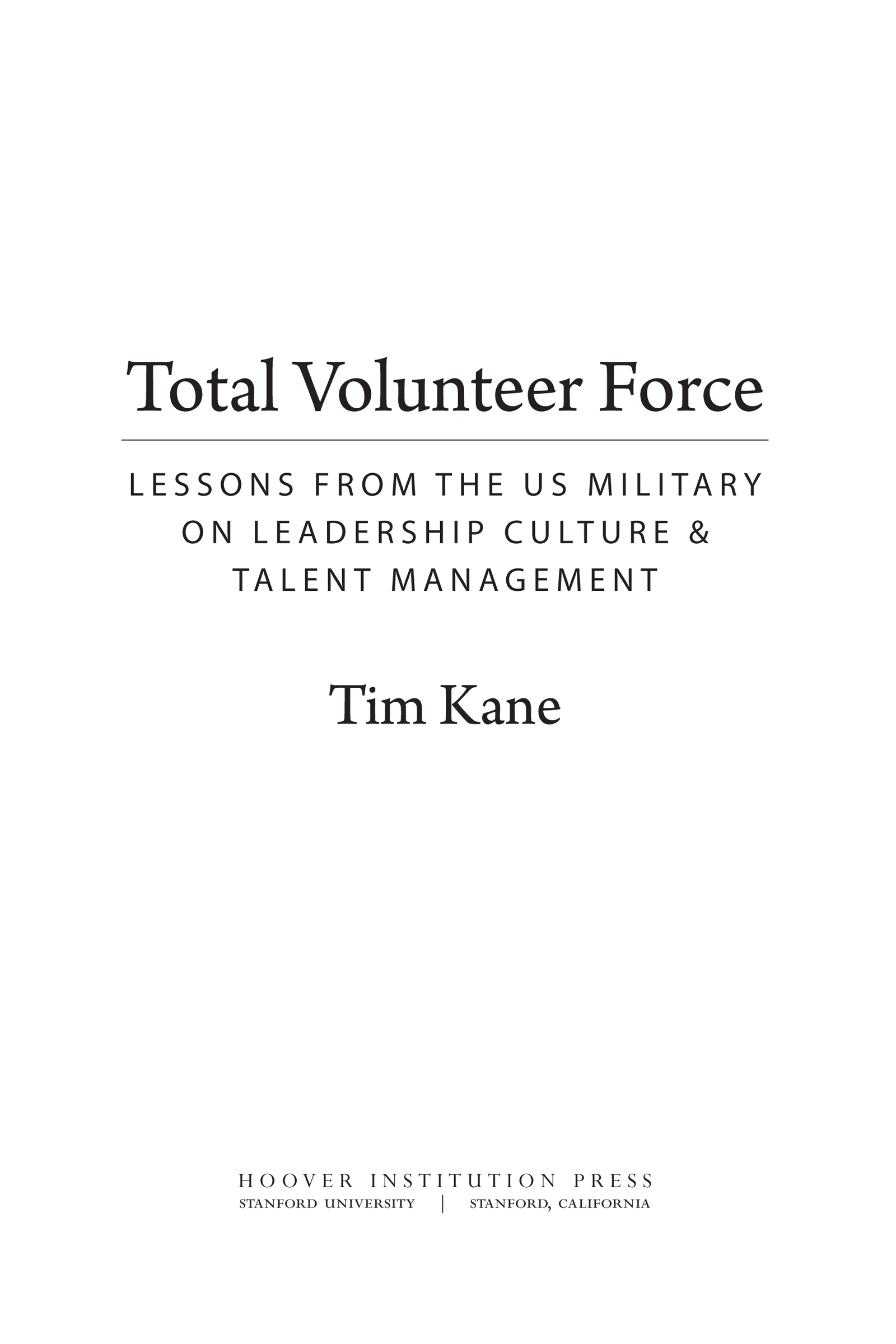
With its eminent scholars and world-renowned library and archives, the Hoover Institution seeks to improve the human condition by advancing ideas that promote economic opportunity and prosperity, while securing and safeguarding peace for America and all mankind. The views expressed in its publications are entirely those of the authors and do not necessarily reflect the views of the staff, officers, or Board of Overseers of the Hoover Institution.
www.hoover.org
Hoover Institution Press Publication No. 681
Hoover Institution at Leland Stanford Junior University,
Stanford, California 94305-6003
Copyright 2017 by the Board of Trustees of the Leland Stanford Junior University
All rights reserved. No part of this publication may be reproduced, stored in a retrieval system, or transmitted in any form or by any means, electronic, mechanical, photocopying, recording, or otherwise, without written permission of the publisher and copyright holders.
For permission to reuse material from Total Volunteer Force: Lessons from the US Military on Leadership Culture and Talent Management, by Tim Kane, ISBN 978-0-8179-2075-3, please access www.copyright.com or contact the Copyright Clearance Center, Inc. (CCC), 222 Rosewood Drive, Danvers, MA 01923, 978-750-8400.CCC is a not-for-profit organization that provides licenses and registration for a variety of uses.
Cataloging-in-Publication Data is available from the Library of Congress.
ISBN-13: 978-0-8179-2075-3 (pbk : alk. paper)
ISBN-13: 978-0-8179-2076-0 (EPUB)
ISBN-13: 978-0-8179-2077-7 (mobipocket)
ISBN-13: 978-0-8179-2078-4 (PDF)
Too often, our military is losing and misusing talent because of an archaic military personnel system. Promotions are handed out according to predictable schedules with only secondary consideration of merit. Thats why even after more than a decade of service, there is essentially no difference in rank among officers of the same age. We should ask whether we should give commanders greater discretion to build a staff with the specialists and experts they need in the right positions. Commanders are likely better able to assess their needs than bureaucrats in the personnel system.
SENATOR JOHN McCAIN, CHAIRMAN OF THE SENATE ARMED SERVICES COMMITTEE, DECEMBER 2, 2015
It is time to reevaluate whether the Defense Officer Personnel Management System, commonly referred to as DOPMA, continues to meet the needs of our military services.
SENATOR JACK REED, RANKING MEMBER OF THE SENATE ARMED SERVICES COMMITTEE, DECEMBER 2, 2015
We stand in line. We wait for our number to come up at a board, and youre either in or youre out. And so its an up-or-out system, which, again, has worked very well for us, but I see that changing over time.
The accelerant in this is Congress, because they write the law. DOPMA and the law and personnel policy are authorities granted to us from Congress, so they have to take this on as much as we want it.
VICE ADMIRAL WILLIAM MORAN, CHIEF OF NAVY PERSONNEL, DECEMBER 9, 2014
Dedicated to the memory of my friend Mike Tomai.
Thank you for volunteering.
Contents
Foreword
O ver forty years ago, Milton Friedman and his friend Martin Anderson put forward the idea of ending the draft and recruiting volunteers for the armed forces. Since the draft ended in 1973, the concept of the volunteer armed forces can now be said, unequivocally, to have succeeded. The nation has been privileged to have talented young men and women volunteering to serve in our armed forces and maintaining our national security.
The ironic thing about the All-Volunteer Force is that those who enter the armed services volunteer only oncewhen they join. After joining the armed forces, their careers become subject to a variety of regulations, regardless of their own preferences. Commanders and service chiefs have little control either, because the law now requires that assignments are made by centralized bureaucracies and that promotion timelines are identical for each service. Isnt it about time that someone took a look at this situation and made some suggestions?
Well, someone has. Tim Kane has thought about this issue and has provided us with a blueprint of how our volunteer forces can be improved. This is a worthwhile endeavor because it will undoubtedly enhance the quality, readiness, and efficiency of the work done by our armed forces, whether in combat or in manning the posts that help secure our borders and our interests around the world.
Tim Kane has done us a service in writing this book, and his work leads to other issues that must be addressed. One of the problems of the Pentagons current personnel system is that pensions and health care costs for retirees are growing at a rate that, if nothing is done, will require a huge portion of the defense budget that is needed to support our national security. It is clear that the health care system is in need of reform, and the growing use of health savings accounts is one step in the right direction. In this volume, Kane effectively takes on important aspects of the pension problem. Replacement of the current pension system of defined benefits with one of defined contributions, in which individuals match government contributions, would remove the pension liability overhang.
This change is also notable because it would help preserve the concept of volunteerism. The current system almost ensures that an individual in the armed forces will stay for twenty years and, often, not a day longer, because that is when the pension system kicks in. Under the Kane system (increasingly used by private US employers), there is no such turning-point date, so a spirit of volunteerism and its benefits can continue indefinitely. He has other suggestions for compensation reform that are worthwhile as well, rooted in ideas that many other economists have written about for quite some time, notably our fellow Hoover Institution colleagues Eric Hanushek and the late Martin Anderson, who was himself the godfather of the 1973 reforms. Incentives matter. And the military has for too long incentivized seniority at the expense of merit, talent, and skills for the twenty-first-century security environment.
GEORGE SHULTZ
Thomas W. and Susan B. Ford Distinguished Fellow, Hoover Institution, Stanford University
US Secretary of State (198289)
Captain, US Marine Corps (194245)
Acknowledgments
F irst and foremost, I would like to thank the men and women who serve in the US military, including individuals on active duty, those in the reserves and National Guard, and veterans. Hundreds have given their time and wisdom to this project, and I hope the result is worthy of their respect.
Literally hundreds of senior officers and government officials have advised me and provided feedback on drafts, and I am especially grateful for informative visits and opportunities to discuss the research during sessions at the Pentagon, Naval Personnel Command, US Air Force Academy, University of Kansas, the Philanthropy Roundtable, and the Naval Postgraduate School.



